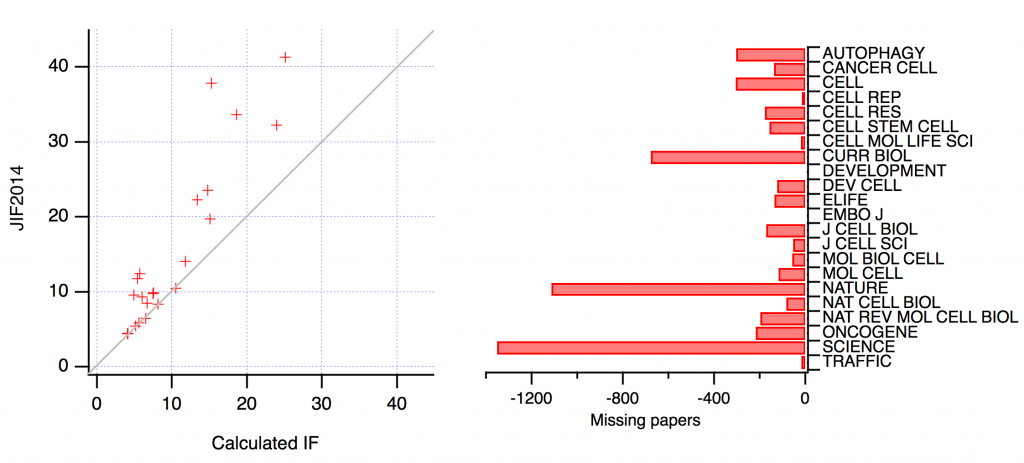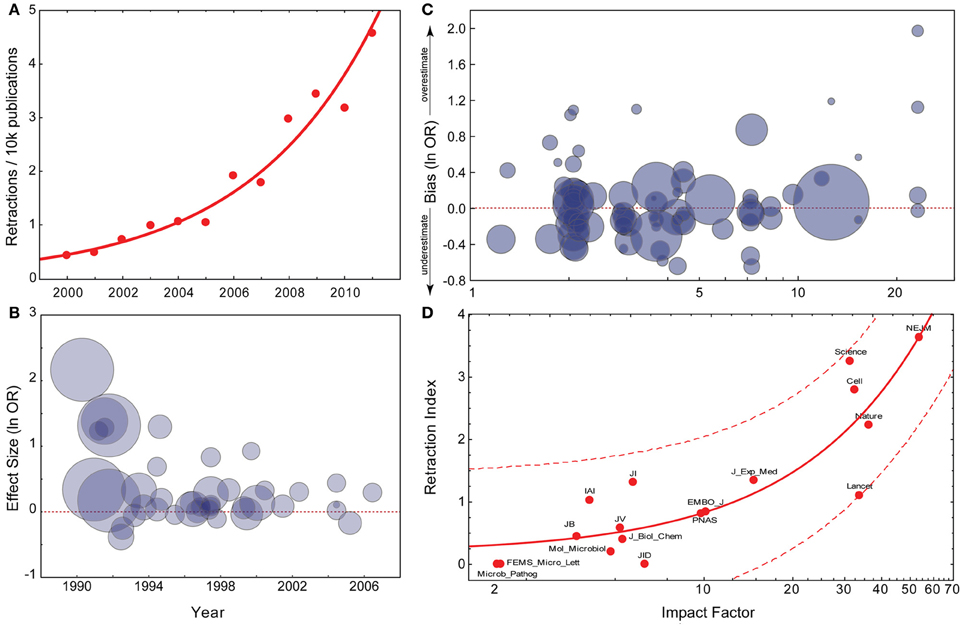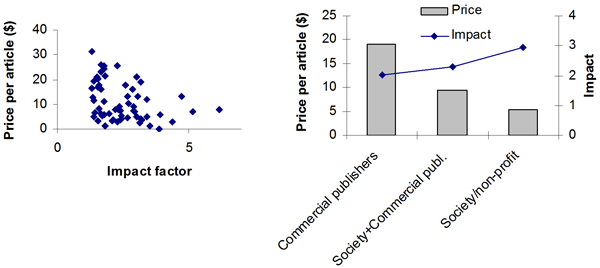The DFG is a very progressive and modern funding agency. More than two years ago, the main German science funding agency signed the “Declaration on Research Assessment” DORA.

tl;dr: Data from thousands of non-retracted articles indicate that experiments published in higher-ranking journals are less reliable than those reported in ‘lesser’ journals. Vox health reporter Julia Belluz has recently covered the reliability of peer-review.

Over the last decade or two, there have been multiple accounts of how publishers have negotiated the impact factors of their journals with the “Institute for Scientific Information” (ISI), both before it was bought by Thomson Reuters and after. This is commonly done by negotiating the articles in the denominator.

In the last “Science Weekly” podcast from the Guardian, the topic was retractions. At about 20:29 into the episode, Hannah Devlin asked, whether the reason ‘top’ journals retract more articles may be because of increased scrutiny there. The underlying assumption is very reasonable, as many more eyes see each paper in such journals and the motivation to shoot down such high-profile papers might also be higher.
I recently was sent a report from a university-wide working group on the publishing habits within the Freie Universität Berlin. I don’t think this document is available online, but I think I’m not doing anything illegal if I publish some of the survey results here. The working group polled all faculty members of the university on various questions concerning scholarly publishing.

In what area of scholarship are repeated replications of always the same experiment every time published and then received with surprise, only to immediately be completely ignored until the next study? Point in case from an area that ought to be relevant to almost every single scientist on the planet: research evaluation.
Yesterday, Science Magazine published a news story (not a peer-reviewed paper) by Gonzo-Scientist John Bohannon on a sting operation in which a journalist submitted a bogus manuscript to 304 open access journals (observe that no toll access control group was used). Science Magazine reports that 157 journals accepted and 98 rejected the manuscript.

I’ve just been invited to edit a special issue in the MDPI journal ‘publications’ on a topic I can specify. If I do it, I thought it should revolve around replacing journal rank (i.e., altmetrics, ALM, etc.) and other (technical?) means to transcend a journal-based literature towards a coherent knowledge-dissemination infrastructure that incorporates of course text, but also software and data.

*During my flyfishing vacation last year, pretty much nothing was happening on this blog. Now that I’ve migrated the blog to WordPress, I can actually schedule posts to appear when in fact I’m not even at the computer. I’m using this functionality to re-blog a few posts from the archives during the month of august while I’m away.
*During my flyfishing vacation last year, pretty much nothing was happening on this blog. Now that I’ve migrated the blog to WordPress, I can actually schedule posts to appear when in fact I’m not even at the computer. I’m using this functionality to re-blog a few posts from the archives during the month of august while I’m away.